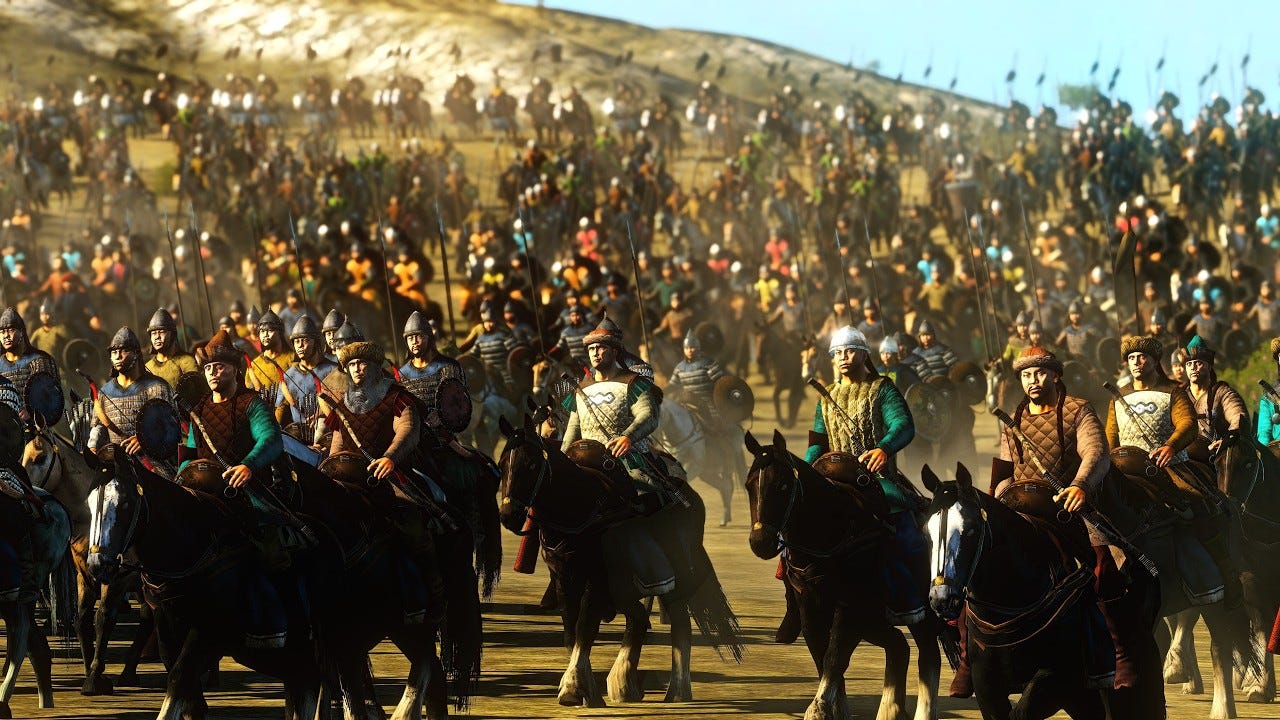On This Day in 1260: The Day the Mongols Were Broken at Ain Jalut
How a defiant Sultan, a daring ambush, and a broken myth stopped history’s most feared empire in its tracks
A Turning Point Carved in Dust and Blood
On this day in 1260, the most feared military force the world had ever seen was stopped in its tracks. In the Valley of Ain Jalut, in present-day Israel, the Mongol Empire suffered its first major defeat. Their aura of invincibility, which had cowed rulers from China to Eastern Europe, was punctured not by a larger army or superior weapons, but by a leader who refused to bend.
Sultan Qutuz of Egypt, recently crowned and surrounded by potential traitors, had every reason to play it safe. When Mongol envoys arrived in Cairo, demanding submission, many expected him to follow the script. Instead, he executed them, mounted their severed heads outside the city gates, and prepared for war.
That single act sent a message. The world had been living in fear of the Mongols for too long, and Qutuz was done playing along.
Fear as a Weapon
The Mongols built their empire not just on speed and brutality, but on fear itself. When they took Baghdad in 1258, they ended 500 years of Abbasid rule in a matter of days. What followed was a massacre so total that the Tigris River was said to have run black with ink from looted libraries and red with blood from the slaughtered.
They did not just defeat cities, they erased them. They turned resistance into a cautionary tale. Most leaders saw what happened in Baghdad and gave in without a fight.
That tactic worked until it met someone who had nothing to lose. Qutuz was a warrior first, a politician second. He knew the Mongols could kill him. He also knew that surrender would not save Egypt in the long run. So he gambled everything on one fight.
Outnumbered but Not Outthought
After the fall of Baghdad, the Mongols moved west into Syria and aimed for Egypt next. Hulagu Khan sent his general Kitbuqa to lead the attack. But just as the invasion was set to begin, news came from the east. Hulagu's brother, the Great Khan Möngke, had died. Hulagu rushed back to the Mongol heartlands to secure his power, taking most of his army with him and leaving Kitbuqa with a smaller force.
This was Qutuz’s moment. He marched north with the Mamluk army, joined by his general Baibars. They did not wait to be attacked. They met the Mongols head-on, not in the open desert where Mongol cavalry thrived, but in the rocky hills of Ain Jalut.
Baibars devised the plan. A small force would bait the Mongols into a narrow valley, then pretend to retreat. Once the Mongols gave chase, the rest of the Mamluk army, hidden in the hills, would surround and crush them.
When the Mongols took the bait, the trap snapped shut.
When Empires Shatter
The battle at Ain Jalut was brutal. Arrow storms filled the air. Horses screamed. Men fell in waves. The Mamluks were outnumbered at first, but they fought with the knowledge that defeat meant extinction.
When Kitbuqa tried to rally his men and charge, his horse was shot out from under him. He was quickly surrounded and cut down. That moment shattered what little Mongol morale remained. Their lines collapsed. Those who did not die fled.
The result was more than a military victory. It was the destruction of a myth. For the first time, people realised the Mongols could be beaten. And once that belief spread, the tide of history turned.
The Mongols never pushed further west. Their empire, already stretched thin, soon fractured. Civil wars erupted. The era of unstoppable conquest was over.
The Victory That Cost a Life
Despite his victory, Qutuz would not live to enjoy the triumph. As the army made its way back to Cairo, he was assassinated. The plot was led by none other than Baibars, his trusted general. Politics, as always, devoured its own.
Baibars took the throne and became one of the most celebrated rulers of the Mamluk Sultanate. He ruled for seventeen years and brought stability to the region. Still, it was Qutuz who made the decisive call. It was Qutuz who refused to submit, who dared to strike first, and who turned a death sentence into one of the most important victories in medieval history.
On this day in 1260, at Ain Jalut, a long-feared empire lost more than a battle. It lost its edge. Fear, once its greatest weapon, began to fade.
Qutuz and his army did more than stop a Mongol advance. They changed the future. And in doing so, they reminded the world of a truth that is often forgotten: no empire is too big to fall, and no legend is beyond breaking.


